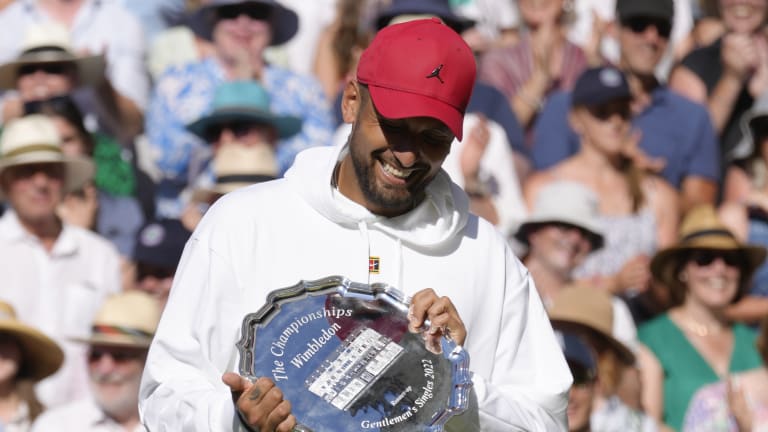Wimbledon
"How am I here?": Nick Kyrgios was two sets away from winning Wimbledon—and is OK with it
By Jul 10, 2022Wimbledon
Darren Cahill: Jannik Sinner watches more Carlos Alcaraz matches than he does with any other player
By Jul 14, 2025Wimbledon
Jannik Sinner reignites Carlos Alcaraz rivalry with Wimbledon victory
By Jul 14, 2025Wimbledon
Jannik Sinner reversed his usual pattern against Carlos Alcaraz. It won him Wimbledon
By Jul 14, 2025Wimbledon
Veronika Kudermetova and Elise Mertens win women's doubles title at Wimbledon
By Jul 13, 2025Wimbledon
Joy to the World: What Carlos Alcaraz has, and what we are enjoying
By Jul 13, 2025Wimbledon
Iga Swiatek keeps surprising herself after Wimbledon title caps "surreal" turnaround on grass
By Jul 12, 2025Wimbledon
Iga Swiatek wins first Wimbledon, sixth Grand Slam title with 6-0, 6-0 rout of Amanda Anisimova
By Jul 12, 2025Wimbledon
Wimbledon men's final preview: Will Carlos Alcaraz, Jannik Sinner share another epic?
By Jul 12, 2025Wimbledon
Julian Cash, Lloyd Glasspool become first all-British pair to win Wimbledon men's doubles title since 1936
By Jul 12, 2025"How am I here?": Nick Kyrgios was two sets away from winning Wimbledon—and is OK with it
"I've committed everything I can commit these two weeks and I just came up short. I was taught that's all right,” the Aussie reflected. Will Sunday's major final debut spur him on to approach future tournaments the same?
Published Jul 10, 2022
Advertising
Advertising

Kyrgios was bidding to become the first man since Roger Federer in 2003 to break through with a maiden major title.
© AP